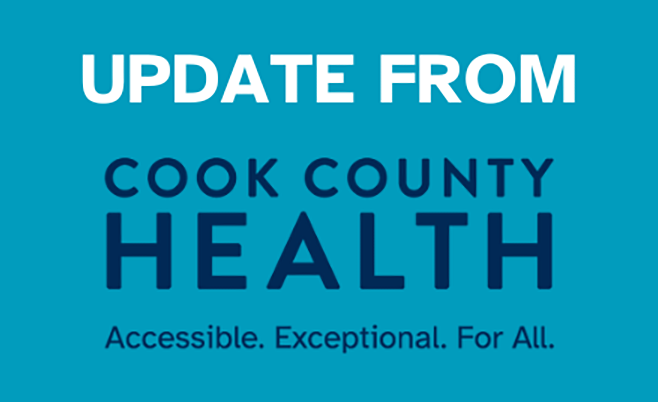Six months ago Dr. Ram Raju took command of the ailing Cook County health system. His prime mission: Stop the money hemorrhage.
That’s vital because as the county’s health and hospital system budget goes, so goes the county’s financial health. Last year, for example, the health system busted its $911 million budget by nearly $170 million. The county’s roughly $3 billion total budget tilted into the red by nearly the same amount.
And this year? For the first three months of the fiscal year that began Dec. 1, the health care system eked out a $2.1 million budget surplus, driving an overall county budget that also was roughly on target.
Reason to celebrate at least a temporary end to the bleeding? Sure. Reason to declare victory? No. But after so many years of rampant mismanagement, cronyism and corruption at the health system, we’ll take it.
The prognosis, although brighter, remains guarded. The health system fell short on collecting patient fees for two of the first three months of the fiscal year. A windfall of federal dollars from a retroactive Medicaid rate hike made up the difference and allowed the health system to post that gain.
Raju says the system will fall short of its budgeted revenue number for this year, but by “much less than” last year’s figure.
“No miracle has happened, but we’re moving in the right direction,” Warren Batts, chairman of the county’s health system’s independent board, tells us.
Here’s what everyone with a stake in this health system — taxpayers included — needs to know:
- A system notorious for not sending doctor bills to patients is now doing so. The system has collected an extra $1 million so far this year; Raju told us he expects to reap $8 million to $10 million this year. Some docs in the past have resisted billing patients whom they viewed as unable to pay — unauthorized acts of charity that flouted county policies. “He has been able to get the doctors to bill for their services more than I ever thought possible,” says Cook County Commissioner Larry Suffredin. “I marvel at that.”
- Another marvel: A mountain of backlogged hospital bills that hadn’t been mailed — $14 million worth for inpatient visits, if you can believe it — has been whittled down. New financial systems coming on line mean that the county “will have a system in place that will bill and collect everything we need to,” Raju tells us.
- A system that didn’t know enough about its patients — How many come from other counties for care? How many are undocumented and thus ineligible for any government reimbursement? — is now collecting more data on patients. That will help the county seek federal reimbursement and bill patients more consistently.
One key to improving the health system’s finances going forward: Attract and retain Medicaid patients. Right now, many Medicaid patients are abandoning the county’s health system. Think of them as customers who, when they leave, take their Medicaid payments with them to other health providers. A high percentage of those who remain in the county system are so-called “self-pay” patients — a euphemism for mostly uninsured poor who, in fact, can’t pay.
Of those who come to the emergency room, 85 percent can’t or don’t pay, Raju says. The figure is 80 percent for outpatient care. Overall, almost 6 in 10 people who show up in the county’s hospitals and clinics can’t pay for the services they receive, and there is no insurance or government program that will reimburse Cook County taxpayers for their care.
One solution: Cook County officials are asking the Illinois Legislature to change state law so they can ask the federal government for permission to add about 100,000 new Medicaid patients to the rolls early. Most of these patients already are being treated in county clinics and hospitals. They will be eligible for Medicaid coverage in 2014, when the national health care law kicks in. Bottom line: Signing them up for Medicaid early won’t cost the state a penny it isn’t already paying — but the federal reimbursement, which covers about half of Medicaid treatment costs, would be a windfall for the county health system.
These early-arriving Medicaid patients would be able to obtain care only in the county’s system until 2014. After that, they could go anywhere for treatment. But that 18 months would give the county a prime opportunity to earn the loyalty, trust — and future business — of those patients. State lawmakers, help make this happen.
Raju says new information technology and electronic medical records throughout the system should yield higher revenues, streamline purchasing and — most important — improve patient care. He says the county must become more “patient-centric” if it’s to thrive. No argument here. Delivering efficient, high quality care to the thousands of low-income patients who depend on the county remains Job One.
Keep it up, Dr. Raju. Looks like your patient is on the mend.
Copyright © 2012, Chicago Tribune

